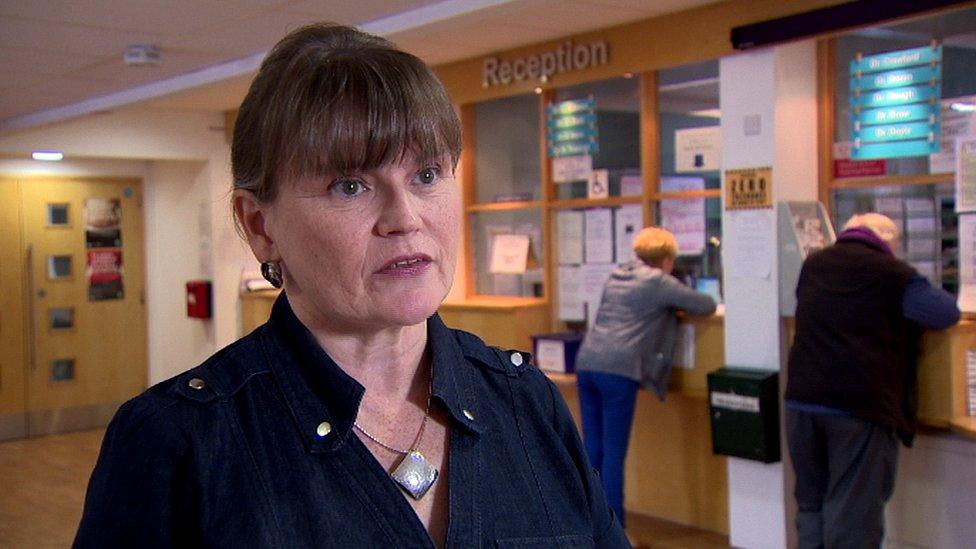Southern Health Trust's out-of-hours service 'broken'
- Published
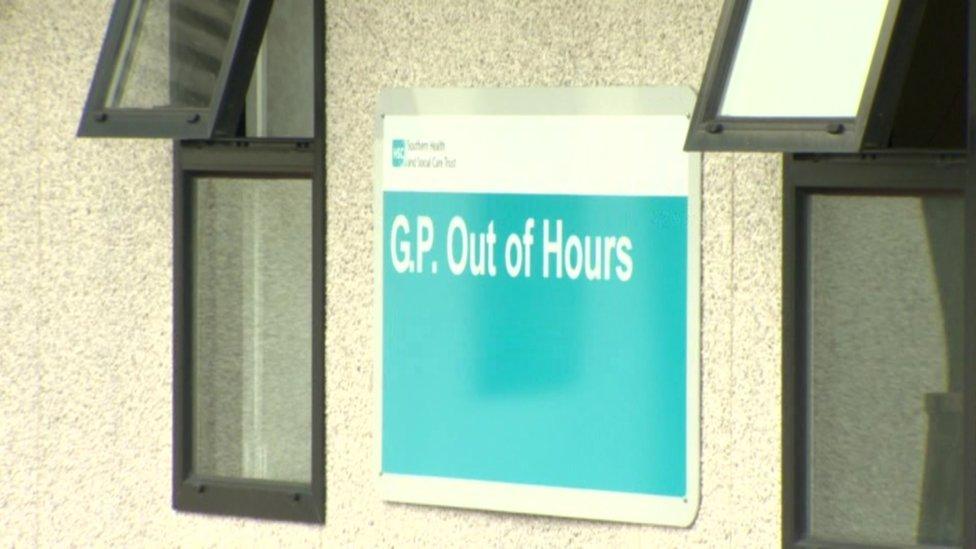
One out of hours doctor had to look after an entire health trust, said Dr O'Hagan
The Southern Health and Social Care Trust's out-of-hours service is "broken", says a GP.
Patients are being denied a proper service, said Dr Frances O'Hagan.
People were often being placed at risk as one out-of-hours doctor had to provide cover for the entire Trust area, said Dr O'Hagan.
"We as doctors are not being able to provide the type of service that we want due to the lack of doctors available to provide cover," she said.
"Unfortunately the service in the Southern Health Trust is already broken."
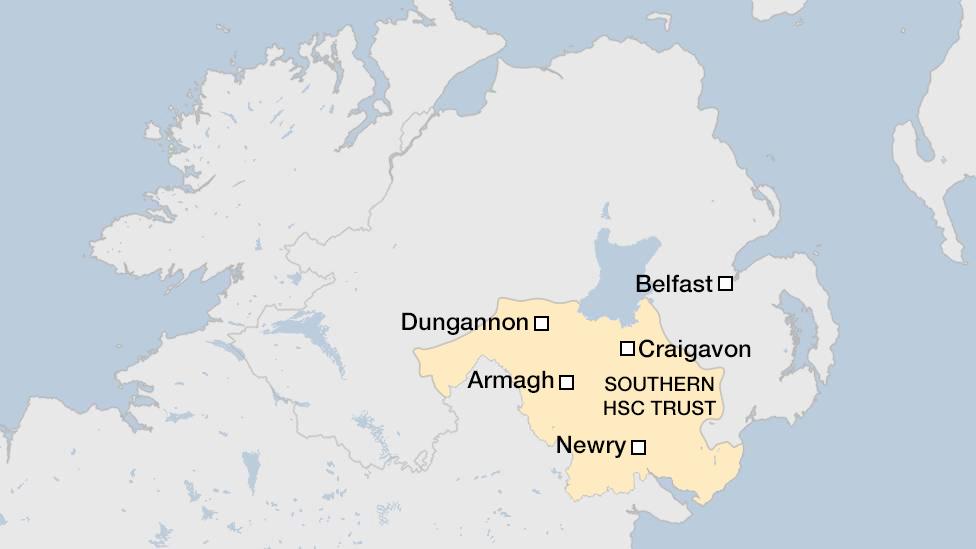
The Trust serves a population of some 300,000 people
For six nights from 22-27 August, one doctor had to cover the so-called red-eye shifts - which last from midnight to 08:00 and are normally covered by 3 GPs - for the entire health trust, which serves a population of some 300,000 people, it has emerged.
Working an out-of-hours shift can mean covering from Kilkeel to Pomeroy, and up to Moira, entirely alone, said Dr O'Hagan.
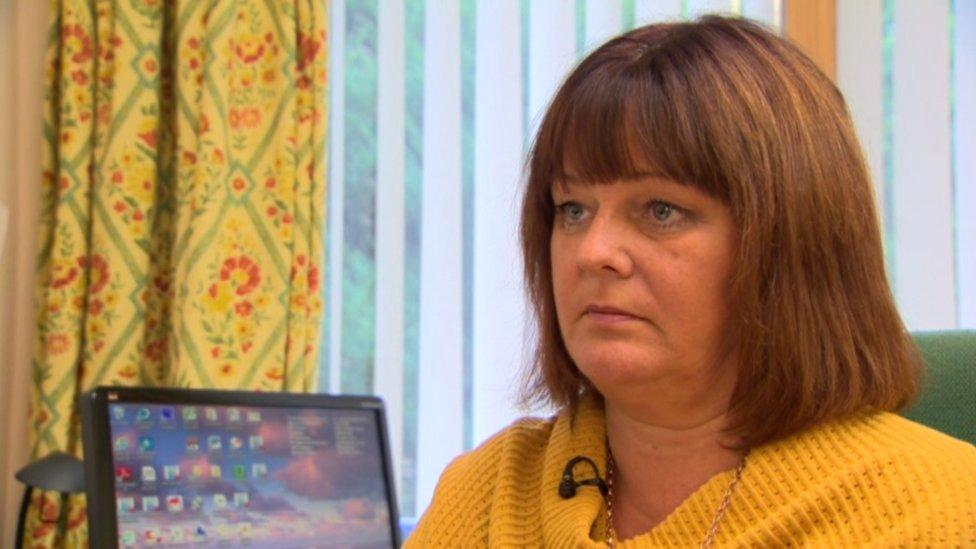
Dr O'Hagan had to cover an area normally looked after by three doctors
Red-eye shift 'a nightmare'
While that doctor is expected to make some house calls, there can often be 100 telephone calls to deal with as well, she added, recalling the midnight start of one recent red-eye shift.
"I received a call from a patient who was actively suicidal," said Dr O'Hagan. "Within an hour I had two similar calls - so three serious mental health cases to deal with. I was the only doctor on call for the entire Trust.
"I had to attend Craigavon area hospital to see whether one needed admitted under the Mental Health Order," she added.
"The police and social services were involved and each of the cases took in excess of an hour.
"And on top of that I had calls regarding children with temperatures, palliative care cases and patients in nursing homes.
"That particular red eye shift was a nightmare."
According to several doctors who spoke to the BBC, one doctor on call is becoming the norm.
Figures obtained by the BBC also reveal that 47 out-of-hours shifts were unfilled from 22-27 August.
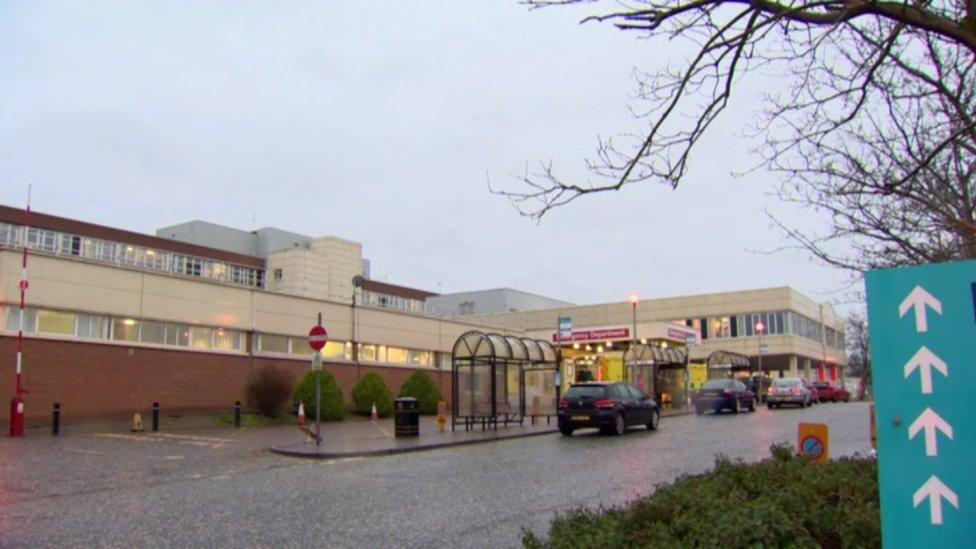
An on call doctor can be expected to answer up to 100 calls as well as attending hospital with patients
Huge pressure
According to Dr O'Hagan, it is more common for a GP to be working alone on the red-eye shift than with colleagues.
"I regularly work alone," she said. "It's a huge pressure. It is not fair on us or the patients. Also due to insurance I can only work so many red eye shifts a month - sometimes they need me in earlier but I would be breaking my contract to do that."
The Southern Health Trust says it recognises the problem.
Director of Older people and Primary Care Angela McVeigh said: "Certainly we recognise the service is under pressure and at times the red eye shift there is only one doctor on cover.
"But as I have said we also have nurses available to provide triage and we have the Marie Curie service available overnight to provide a service to patients."
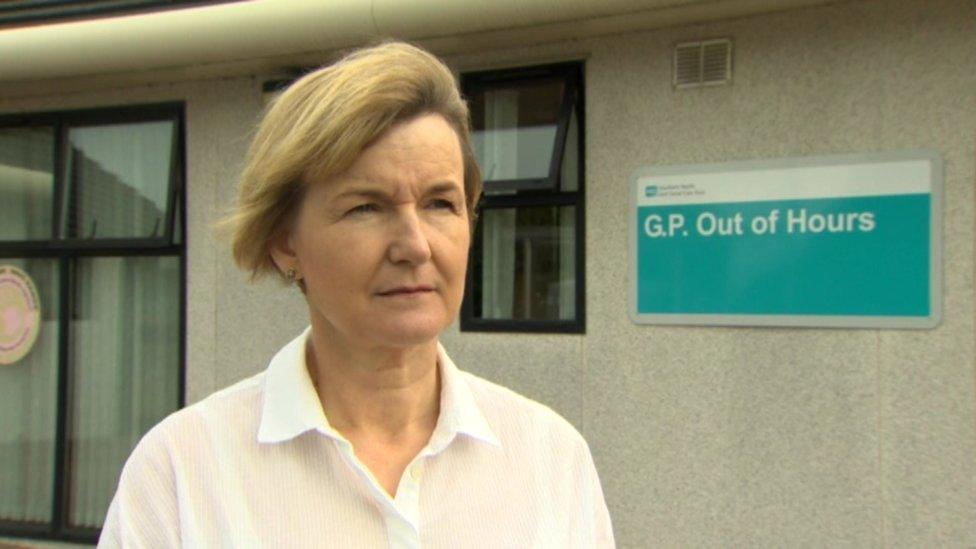
The Southern Health Trust is asking that people think carefully before they call an on-call GP
However, the Trust stresses that part of the problem is too many people misusing the out-of-hours service which is only intended for emergencies.
Many of the callers are taking doctors away from urgent cases, said Angela McVeigh.
"A lot of the contacts would not be for urgent care - some are for minor ailments such as headlice, cold sores even hangovers," she said.
"We are asking the public to think carefully when they dial the number and to think of other services that might be available to them."
Long waiting times
Too few GPs also means long waiting times for patients.
Julia Cully from Waringstown had to wait almost eight hours to see a doctor after she developed severe pains in her back and stomach over the bank holiday weekend.
"I was in a lot of pain on Sunday becoming very unwell overnight," she said.
"I don't like bothering the doctor but by Monday morning I made the call. That was around 11 am.
"I was told they were very busy and someone would ring back which they did almost 3 hours later. But it was a nurse who rang back. I finally got to see a doctor at 8 pm and was diagnosed with a kidney infection.
GPs who spoke to the BBC said the workload is having a detrimental impact on their own health.
Often after finishing the overnight shift, doctors are expected back in the surgery after having only a few hours sleep, said one GP.
- Published7 June 2016
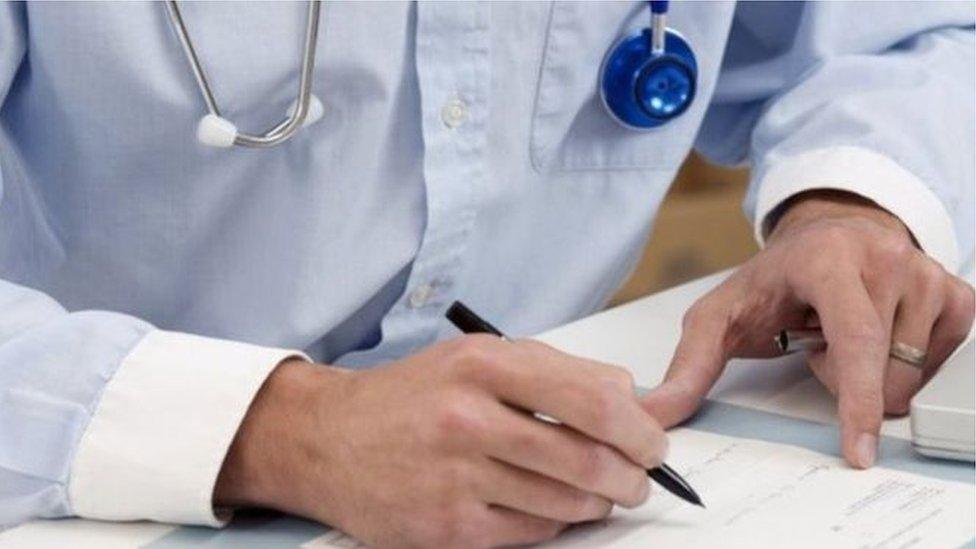
- Published18 March 2016

- Published16 September 2015

- Published16 September 2015
